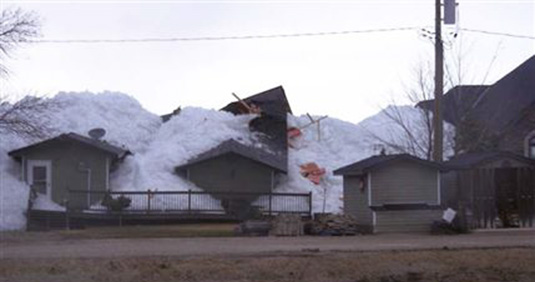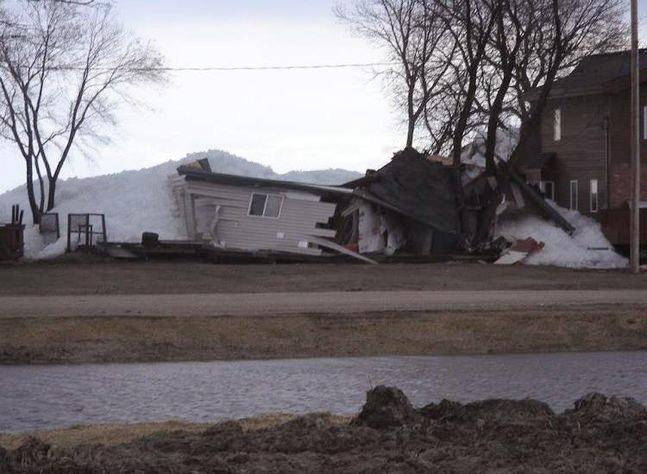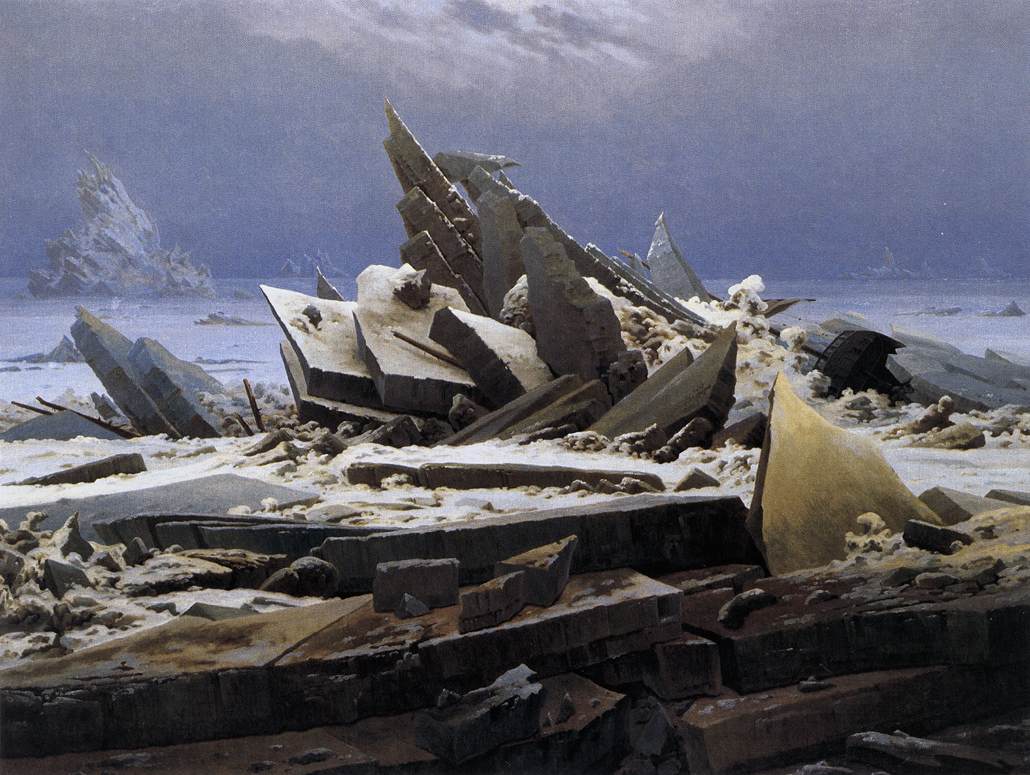 [Image: “The ice is up taller than the cottages and homes,” we read. “It kind of dwarfs them.” Photo and quotation via the Winnipeg Free Press].
[Image: “The ice is up taller than the cottages and homes,” we read. “It kind of dwarfs them.” Photo and quotation via the Winnipeg Free Press].
Several houses were destroyed, the Winnipeg Free Press reports, after “a massive ice floe rose out of Dauphin Lake” in central Canada. One local homeowner described the ice’s arrival as “so powerful that it plowed though his two-storey home, pushing furniture from one bedroom into another. It pushed the bathroom tub and vanity into the hallway.”
This kind of reverse-Titanic moment occurred just as the gentleman had sat down to watch TV: “Then he heard the ice coming.”
In fact, one wonders, if this were to become an annual event, how houses might be adapted to account for it, similar to John McPhee’s descriptions of the altered suburbs of Los Angeles, where garage doors have been repurposed to let mountain landslides pass safely through. You pop open some doors and shutters, or deploy emergency stilts, and the ice slides quietly by, your lakeside home unviolated.
 [Image: “This is nothing you can predict,” one homeowner said. “There’s nothing you can do to prevent this.” Photo and quotation via the Winnipeg Free Press].
[Image: “This is nothing you can predict,” one homeowner said. “There’s nothing you can do to prevent this.” Photo and quotation via the Winnipeg Free Press].
The photos also show what it might look like if an ice age were to kick off again in the North American suburbs, with massive walls of ice simultaneously crushing houses from all sides and bursting them from within, like Caspar David Friedrich’s Sea of Ice crossed with an unpublished novella by J.G. Ballard.
 [Image: The Sea of Ice by Caspar David Friedrich].
[Image: The Sea of Ice by Caspar David Friedrich].
The Great Plains of America filled with jagged labyrinths of ice, their peaks and troughs littered not with the timber of shipwrecks but with the split wooden frames of abandoned houses.
(Thanks to Lawrence Bird for the tip! Randomly related: Floating islands gone wild.)

Any idea what caused this ice flow to "go rogue" and come up on land? Wind? A storm on the lake?
blown by the wind…
http://www.cbc.ca/news/canada/manitoba/story/2013/05/10/mb-ochre-river-beach-ice-wave-homes.html
Per the Free Press article, "The ice shift, which occurred around 6 p.m., was caused by high northwest winds that reached gusts of 60 km per hour."
I had to re-format a link from lsanderson—original commented re-posted below:
Similar, but less destructive, ice out on Mille Lacs lake in Minnesota.
With some video of the marching ice.